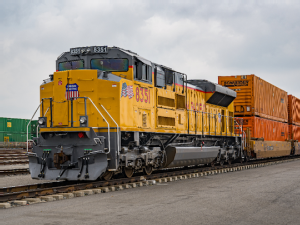Donald Seale, chief marketing officer, said domestic demand for coal, a key part of Norfolk's business, is expected to stay weak in the near future as electric utilities replace coal with cleaner, low-cost natural gas.
Norfolk competes with CSX Corp regionally, and both railroads traditionally get a lot of business from transporting coal in the Appalachian region of the eastern United States.
"Coal is diminishing in volume, but the rails would gladly take more coal as the market demands. It remains over 20 percent of sales (for most railroads) and it is higher margin than most other commodities," said Keith Schoonmaker, an analyst with Morningstar.
Coal revenue was down 17 percent in the quarter for Norfolk, due to lower prices and demand. Intermodal revenue climbed 9 percent.
Intermodal is the shipping of containers that can be moved from one form of transport to another, such as from train to ship.
Last week, CSX, the No. 2 U.S. railroad, posted a higher quarterly profit as strong business in merchandise and intermodal helped offset its struggles with the coal business.
For the first quarter, Norfolk, the country's third-largest railroad, earned $450 million, or $1.41 a share. A year ago, the Norfolk, Virginia-based company earned $1.23 a share.
Excluding a gain from a land sale, the company earned $1.22 a share, while Wall Street was expecting $1.17, as per Thomson Reuters I/B/E/S.
Railway operating revenue fell 2 percent to $2.74 billion. However, shipment volume increased 3 percent. (Reuters)








